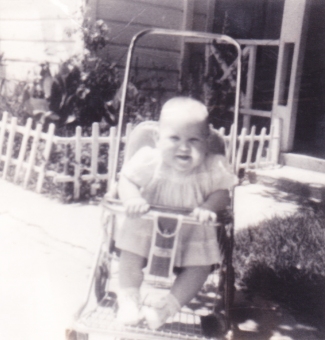To celebrate Mental Health Awareness Month, I thought it would be fitting to revisit this blog post from 2016. I was having a conversation yesterday with my trusted advisor who reminded me of all my mental health, psychology and counseling education, training and experience as a Behavioral Clinician and designations as a Qualified Mental Health Professional and Certified Christian Counselor. She said that I should start offering coaching/consulting services in addition to my writing about relationships and mental health. If you’re interested in working with me one-on-one or would like me to speak at your group or event, let’s talk about how I can help you. Now, let’s flashback to the Summer of 2016 …
We’ve reached the unofficial start of Summer and everyone is talking about getting swimsuit ready, but what about your brain health and mental health?
You may be asking, “Senée, what does mental health have to do with relationships and recovery?” It has everything to do with them.
When your brain is healthy, your body functions properly, your relationships are healthier and you’re more capable of achieving recovery.
“People who are emotionally healthy are in control of their emotions and their behavior,” explained HelpGuide.org. “They are able to handle life’s challenges, build strong relationships and recover from setbacks. But just as it requires effort to build or maintain physical health, so it is with mental and emotional health.”
One major component of good mental health is resiliency. The Mayo Clinic described it as “being able to adapt to life’s misfortunes and setbacks … Resilience won’t make your problems go away — but resilience can give you the ability to see past them, find enjoyment in life and better handle stress.”
I mentioned in a previous post that I’ve recently lost 60+ pounds. While I’ve been focusing on improving my health, the weight loss has been effortless and a great side effect. However, I’ve made my mental health a priority working with a trusted advisor on life issues, fasting and praying weekly with a group in addition to attending church regularly and praying daily (all day, every day — it’s an ongoing conversation with God that I believe enhances my relationship with my Higher Power).
The Apostle Paul gave us some great advice for how to tame our minds. “Do not fret or have any anxiety about anything, but in every circumstance and in everything, by prayer and petition (definite requests), with thanksgiving, continue to make your wants known to God. And God’s peace which transcends all understanding shall garrison and mount guard over your hearts and minds in Christ Jesus. For the rest, brethren, whatever is true, whatever is worthy of reverence and is honorable and seemly, whatever is just, whatever is pure, whatever is lovely and lovable, whatever is kind and winsome and gracious, if there is any virtue and excellence, if there is anything worthy of praise, think on and weigh and take account of these things [fix your minds on them],” Philippians 4:6-8 AMP
In addition to this advice, The University of Michigan offers these suggestions for improving your mental health:
- Value yourself — Treat yourself with kindness and respect, and avoid self-criticism. Make time for your hobbies and favorite projects, or broaden your horizons.
- Take care of your body — Taking care of yourself physically can improve your mental health.
- Surround yourself with good people — People with strong family or social connections are generally healthier than those who lack a support network. Make plans with supportive family members and friends, or seek out activities where you can meet new people.
- Give of yourself — Volunteer your time and energy to help someone else. You’ll feel good about doing something tangible to help someone in need — and it’s a great way to meet new people.
- Learn how to deal with stress — Like it or not, stress is a part of life. Practice good coping skills —exercise, take a nature walk, play with your pet or try journal writing as a stress reducer. Also, remember to smile and see the humor in life. Research shows that laughter can boost your immune system, ease pain, relax your body and reduce stress.
- Quiet your mind — Relaxation exercises and prayer can improve your state of mind and outlook on life. In fact, research shows that meditation may help you feel calm and enhance the effects of therapy.
- Set realistic goals — Decide what you want to achieve and write down the steps you need to realize your goals. Aim high, but be realistic and don’t over-schedule. You’ll enjoy a tremendous sense of accomplishment and self-worth as you progress toward your goal.
- Break up the monotony — Although our routines make us more efficient and enhance our feelings of security and safety, a little change of pace can perk up a tedious schedule.
- Avoid alcohol and other drugs — Keep alcohol use to a minimum and avoid other drugs. Sometimes people use alcohol and other drugs to “self-medicate” but in reality, alcohol and other drugs only aggravate problems.
- Get help when you need it — Seeking help is a sign of strength — not a weakness. And it is important to remember that treatment is effective. People who get appropriate care can recover from mental illness and substance abuse disorders and lead full, rewarding lives.

In 2019, how are you improving your physical and mental health? If you’re looking for some ideas, Dr. Sue Morter is a transformational leader and teacher who can show you how to live from your soul and transform your life from the inside out. She’s inviting you to a FREE webinar where you will learn The 3 Secrets to Syncing Up Your Super Powers for Freedom, Flow & Fulfillment.
During this free webinar, you’ll learn how to:
- Recognize the REAL you (Hint: It’s not who you think you are),
- Break free from negative and limiting thoughts and live in an expanded state,
- Tap the Universal flow of energy running through you,
- Change the stories of your past opening you up to greater love and fulfillment,
- Heal your life on every level: mentally, emotionally, physically and spiritually,
- Experience deeper and more fulfilling relationships,
- Experience vibrant health and greater vitality (using a tool you already possess) and
- Live your life in ease and flow for total fulfill.
If you want to learn how to live your life with flow and ease, I invite you to register now so you can get started.
If you enjoy this content and would like to read Senée’s books for free, get on the Royal Team. For more information on how to have successful relationships and peace of mind, check out the bookstore today!


